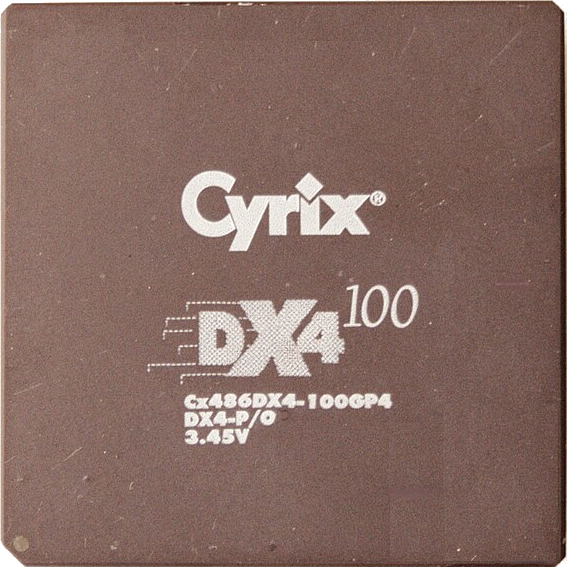

Syncthing is neat, but you shouldn’t consider it to be a backup solution. If you accidentally delete or modify a file on one machine, it’ll happily propagate that change to all other machines.


Syncthing is neat, but you shouldn’t consider it to be a backup solution. If you accidentally delete or modify a file on one machine, it’ll happily propagate that change to all other machines.
or DNS over TCP.
musl does support DNS over TCP since version 1.2.4.
Debian is superior for server tasks. musl is designed to optimize for smaller binaries on disk. Memory is a secondary goal, and cpu time is a non-goal. musl isn’t meant to be fast, it’s meant to be small and easily embedded.
I’ve used Alpine on servers a lot and didn’t notice any performance difference when compared to glibc in the vast majority of cases. This performance comparison even suggests that musl is quite a bit faster in some cases and in most instances it is at least as fast as glibc, which matches my experience.
Okay, thanks for the explanation!
I’m not entirely sure how “… don’t need anything near as memory efficient as Alpine” became “Debian is obviously superior to Alpine”.
This was what made me assume this:
I only ever consider dropping Debian and/or Systemd when going below 512MB RAM.
You make it sound like Debian is obviously superior to Alpine. Alpine Linux is just fine for server tasks. It is nice that is it lightweight, but that isn’t the only thing it has going for it.


Most Webbrowser Support ftp.
None of the popular web browsers support FTP. Maybe some niche browsers still do, but certainly not “most”.


also i am having trouble hunting down what cuesheets means in this context?
When you rip an audio CD you can either create one file for each track or you can rip the entire CD as one track and create a cue sheet file which is basically a text file describing where each track starts in that single audio file. This can be useful to have an exact copy of the CD without adding unintended gaps between tracks. It is primarily useful if you intend on recreating the actual audio CD at a later time from the ripped data. Most people don’t need this.
If you plan on running the laptop all the time on wall power, make sure to limit the battery charge to 80 % or less, otherwise the battery will die pretty quickly.


Yes, using uuidgen should work fine.


Thanks for pointing this out. I thought this had to be an actual UUID. Generating a unique string of arbitrary format manually is certainly much easier to do manually without additional tools.


This is not quite true. As I mentioned in my other comment already, each feed entry needs its own unique UUID. You have to generate such a UUID for every entry.


How do people subscribe to them?
Subscribing to an RSS feed really is nothing more than telling your RSS client about the URL to that RSS XML file. The RSS client then regularily checks the URL for changes.
If your site is hand-made as you say, you would have to manually create and update the RSS file also. This is quite a nuisance, not only because it is XML, but also because every feed entry needs its own unique UUID, which you need to create. Perhaps you could create a script that does it for you. Static site generators are usually able to automatically create an RSS feed for you.
Correct, you summarized that well.
The easiest way to do it is by running a Kiwix server and hosting a copy of Wikipedia with that.
I’ve subscribed to their RSS feed, but their server is so unreliable, my feed reader complains all the time that it is unreachable. When I manually retry it mostly works, only to fail again later. I’m wondering what’s going on there. I never have this problem with any other feed…


Oops, you are correct of course, 6A is what I meant, plain 6 should work fine also most of the time, but there is pretty much no point going for that, unless you have that deployed already.


Can anyone explain to me if a headless chrome browser is dangerous the way a regular chrome browser is?
Almost. You want to make sure to keep it as up-to-date as you would a regular Chrome browser. It does almost everything a regular Chrome does, including running arbitrary scripts on websites.


Anyone have experience converting from 1G LAN to 2.5 or even 10?
Going from 1 G to 2.5 G is fairly cheap these days. You can almost certainly use the same cabling, even when you’ve got only Cat.5e cabling. While you can do 10 G over copper, I wouldn’t suggest doing that, since it consumes quite a lot of power compared to both 1 G and 2.5 G. You’d need Cat.6E for reliable 10 G over copper.


I don’t know your exact setup, but you should add the IP that Jellyfin sees when the reverse proxy makes a request. That probably comes from the IP of your Traefik docker container.
It is just a dead CMOS battery. So the clock had the wrong time, which in turn also causes the log entries to have the wrong time and date. Simply replace the battery. It is most likely of the CR2032 type.